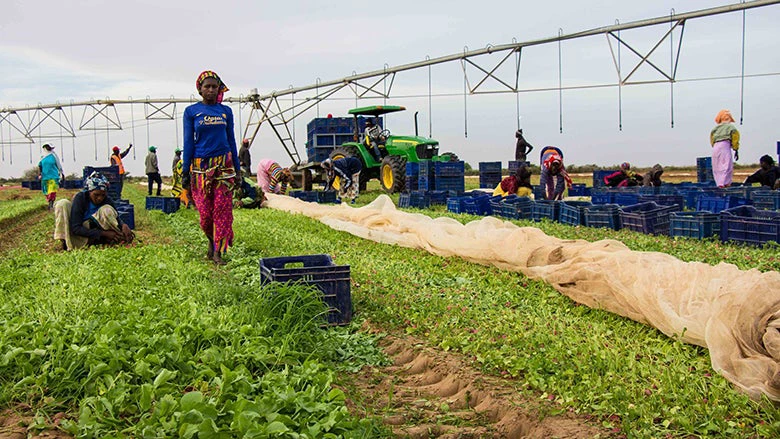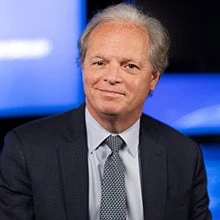
This month’s Development Finance Forum is bringing together public and private sector leaders to talk about how we can drive more private finance in three sectors that are key to development in East Africa: agribusiness, housing finance and tourism. The region’s leaders see these as critical to sustained growth, job creation and long-term economic transformation for their countries.
The World Bank Group sponsors the Forum annually to connect key stakeholders who, by working together, can change the investment landscape in the least developed countries. We aim to pinpoint what each major player can contribute, as well as explore promising ideas, initiatives and partnerships that need an extra impetus to succeed. It’s an exciting time to be an investment partner in the region with its extremely dynamic economies and a lot of innovation taking place.
I will be participating with colleagues from across the World Bank Group, including IFC and MIGA. And I’m pleased that the International Development Association (IDA), the part of our organization that I’m representing, is in a stronger position than ever to help our country partners reach their goals.
IDA is the soft loan lending arm of the World Bank and one of the largest sources of assistance for the world’s 75 poorest countries. Today, 39 of these client countries are in Africa. IDA is replenished by donors every three years, and in our current cycle, IDA18, we continue to receive their strong support. Also, for the first time, our donor partners’ contributions are being complemented by funding from capital markets.
This new financing model is letting IDA reach an unprecedented level of resources--$75 billion for this three-year period. We expect to commit about $45 billion of this to Africa by the end of the cycle in June 2020. And our first year of IDA18, which recently ended, shows we are on track. In the year ending June 30, we committed $15.4 billion for Africa out of a global total of $24 billion in IDA resources.
Paralleling the big gains for IDA, the shareholder countries of the World Bank Group agreed in April to a major capital increase both for IBRD, which lends to governments of middle-income countries, and for IFC, which invests directly in private enterprises. MIGA, our other private-sector arm, is also strengthening its financial position.
So, we have much more financing to offer—but how exactly are we helping bring more private investment to Africa? The answer is a mix of innovation and time-tested approaches. IDA18 offers a new Private Sector Window (PSW) in partnership with IFC and MIGA, combining the Bank Group institutions’ robust support to the private sector in the poorest markets. The PSW works in several ways to boost investments in IDA countries, by creating an enabling environment, making complementary investments, providing guarantees, and directly investing in the private sector. It builds on IFC’s innovative work in mobilizing and managing third-party capital from investors that have strong standards and corporate governance for investment in the poorest countries, as well as MIGA’s leveraging impact to unlock investment potential.
By blending public and private resources, the PSW can help the private sector create markets and show that, with the right risk/return profile, frontier markets are investible and profitable. This in turn encourages further investment. In its first year, the PSW made a strong start, committing $185 million of IDA resources and unlocking more than $600 million of IFC investment and MIGA guarantees. This further mobilized $800 million of private financing to the most difficult IDA markets.
Already the PSW is building experience to share in sectors that are high priorities for East Africa. On agribusiness, for example, it supported MIGA in providing a political risk insurance guarantee for a raisin processor in Afghanistan. On housing finance, it provided local currency risk mitigation to support IFC investments in mortgage companies in both West Africa and Bangladesh. There are also tourism projects under consideration.
Along with the PSW’s innovation, IDA has long prioritized public-sector interventions as a key to spurring private sector development. Over the past decade, IDA has invested $7 billion a year on average to help our client governments improve the regulatory environment, carry out sector reforms, and build enabling infrastructure. These are critical efforts for the private sector to be able to invest, grow, and thrive.
Now, through increased country allocations and IDA’s special financing windows, IDA18 has already scaled up support to governments, including in East Africa. In total, the East African countries have access to over US$7 billion of allocations over the three-year period, and they can also leverage additional funds through regional and other special windows. These financial resources are meant to promote development in Africa, and the success of this effort will be determined also by the investments of the private sector, especially the African private sector. Therefore, the Development Finance Forum is also trying to strengthen the links and the partnership with the private sector in Africa.
Our host country for the Forum, Rwanda, shows how we can bring public and private players together to support a key sector—in this case, housing. Here the Bank Group’s support is helping develop housing finance market on the demand side, and support housing construction and development on the supply side. IDA is providing a $150 million concessional loan to the government, so it can establish a mortgage refinancing company and provide more than 8000 mortgage loans. Meanwhile, IDA PSW support is enabling IFC to provide a long-term loan and equity investment in a major private sector-led housing development providing more than 1000 affordable apartments. Through this combined effort, we expect to help tens of thousands of Rwandans families gain access to a better place to live.
It’s because we help drive innovation in both the public and private sectors that the World Bank Group is an especially valuable partner in African countries. I am confident that through partnership and commitment across the development community—as demonstrated by this month’s Forum and so many other efforts—we can greatly increase private investment and accelerate the work to transform economies in the countries we serve.


Join the Conversation